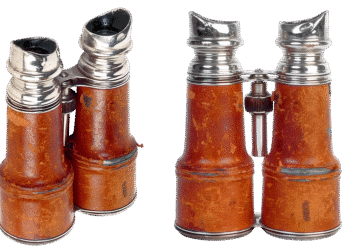Introduction
Hey there! If you’re a recent university graduate in your early twenties, you’ve just stepped into the exciting world of work and finances. You probably feel a mix of excitement and anxiety about managing your money effectively. You’re not alone! Many new graduates find themselves wondering how to build a bright financial future—especially when it comes to credit.
In this article, we’ll explore 10 daily habits of people with excellent credit. By embracing these habits, you’ll not only reduce your financial worries but also set yourself on a path to a stronger credit score and healthier financial decisions. Let’s jump right in!
Section 1: Understand What Credit Is
Credit is like a trust score; it tells lenders how likely you are to repay a debt. Imagine it as your report card in the financial world. Understanding what factors influence your credit score can help you make informed decisions—like when to take out a loan or if you should apply for a credit card.
Daily Habit: Dedicate 10-15 minutes each week to learning about credit. Use resources like blogs or podcasts designed for beginners.
Section 2: Pay Your Bills on Time
Late payments can weigh heavily on your credit score—think of it like a missed deadline in school! Aim to pay all your bills, from credit cards to student loans, on or before the due date.
Daily Habit: Set reminders on your phone or calendar to alert you a few days before payments are due.
Section 3: Keep Your Credit Utilization Low
Credit utilization is the ratio of your credit card balances to your credit limits. A lower utilization rate shows that you’re not overly reliant on credit. Aim to keep this below 30%.
Daily Habit: Monitor your spending regularly. If you notice you’re getting close to your limit, consider making an extra payment.
Section 4: Check Your Credit Report Regularly
Just like checking your grades, you should check your credit report at least once a year. This allows you to spot any errors or unusual activity that could affect your score.
Daily Habit: Take a few minutes to create an account with a credit monitoring service. Many offer free options!
Section 5: Limit New Credit Applications
Every time you apply for a new credit card or loan, a small inquiry is added to your credit report. Too many inquiries in a short period can lower your score.
Daily Habit: Think twice before making any new applications. Instead, plan your credit needs in advance.
Section 6: Build a Diverse Credit Mix
Having different types of credit—like credit cards, student loans, or a car loan—can positively impact your score. However, only take on what you can manage!
Daily Habit: If you don’t have a credit card yet, consider getting one, but make sure to use it responsibly.
Section 7: Create a Budget
Budgeting helps you manage your spending, saving, and investing, keeping you on track financially. Think of it as your financial playbook!
Daily Habit: Spend just 10-15 minutes each day tracking your expenses using apps or a simple pen-and-paper method.
Section 8: Establish an Emergency Fund
Having a small cushion for unexpected expenses can prevent you from relying on credit cards during tough times, which is a huge plus for your credit score.
Daily Habit: Start setting aside a bit of money from each paycheck until you reach at least $500.
Section 9: Stay Educated About Financial Products
Before choosing a credit card or loan, read the fine print. Knowing the terms and fees will help you avoid unwanted surprises.
Daily Habit: Spend a few minutes researching any new financial product you’re considering; make sure it fits your goals.
Section 10: Stay Patient and Persistent
Building excellent credit doesn’t happen overnight. Persistence and good habits are the keys to long-term success.
Daily Habit: Remind yourself of your financial goals regularly—keep them visible, whether through sticky notes or vision boards.
Conclusion & Call to Action
Congratulations on taking the first steps toward understanding the habits of people with excellent credit! By incorporating even just a few of these daily habits into your routine, you’ll be well on your way to a healthier credit score and financial stability.
Remember: Start small. Choose one habit you want to begin with right now—maybe it’s setting a bill reminder or checking your credit report. You’ve got this, and your future self will thank you!












